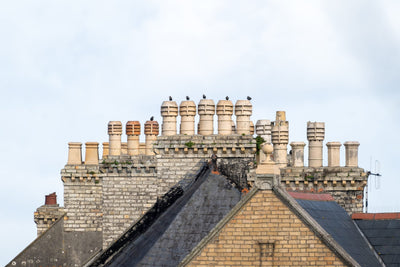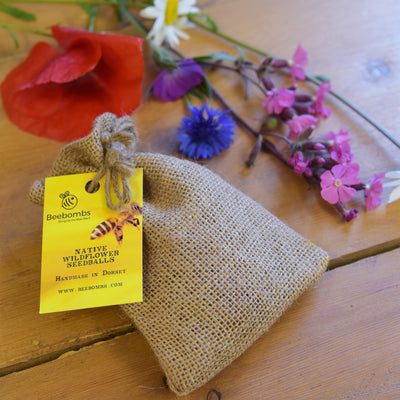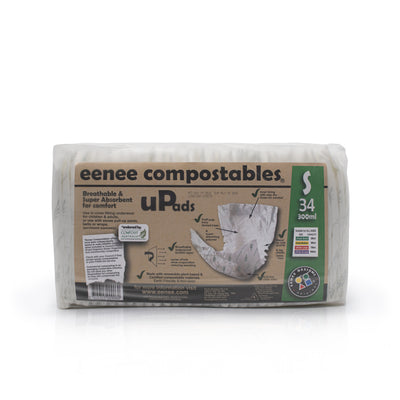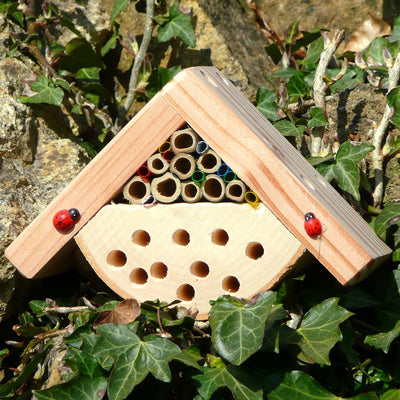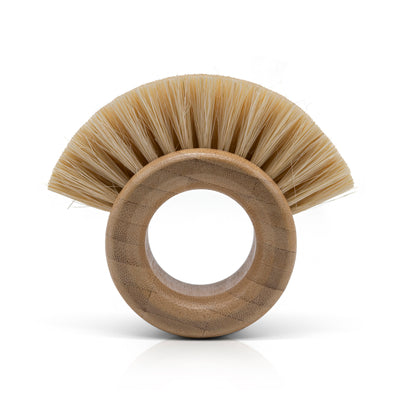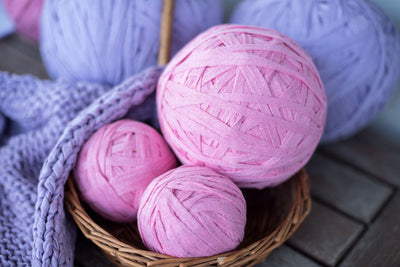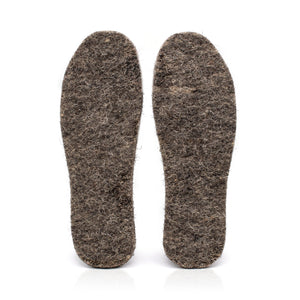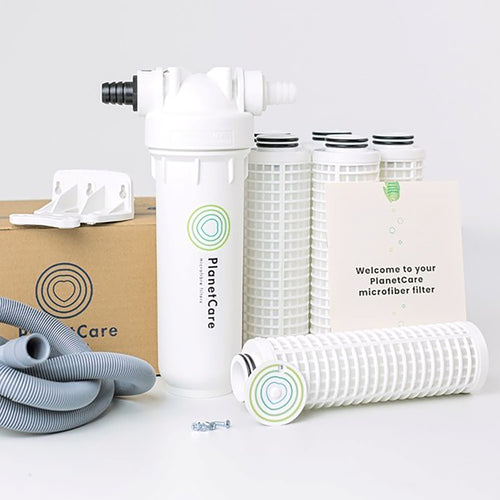We have a range of natural gardening products, each of which has a variety of ways in which they can be used. We love to see the ingenious uses people find for our products so do send us photos!
How to protect potted plants from winter frost
There are two strategies with potted plants. One is to protect the roots in the pot (and the pot itself of course!), and the other is to protect the plant. We’ve got two different products for this.
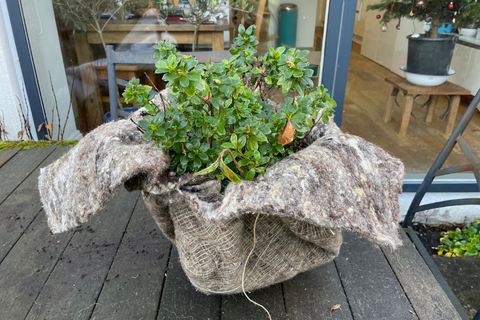
Protect the whole pot from frost
The Royal Horticultural Society recommends wrapping plant pots in bubble wrap. With our sheep wool garden felt you can ditch the plastic, wrap your plants in a nice warm layer of felted wool, to protect them from winter frosts. Cut a large square using sharp scissors, place the pot in the centre of the square, gather it up around the stem of the plant and tie with string.
The felt will last all winter and in the spring you can use it on the garden as mulch. Or dry it out and keep it for the following winter. Or cut it into bits and use it in the base of plant pots, to make your peat-free compost go further and aid with water retention.
We do find that the birds love the wool in the spring time for lining their nests, and who can blame them? That’s why we started selling boxes of wool just for the birds, as a sort of decoy from the wool intended for plants.
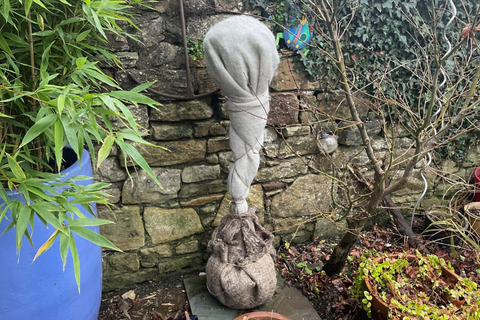
Protect the plant from frost with our natural wool horticultural fleece
Our wool horticultural fleece is a light-weight fabric made of pure wool. It’s perfect for wrapping plants to protect them from frost. It’s translucent so it will let light through to delicate evergreens. Unlike synthetic horticultural fleece however, it will deteriorate in inclement weather so it’s best used to wrap around plants that are in a sheltered location. It’s ideal for plants in a greenhouse or shed for example, that you want to protect when the temperature dips.
How to protect plants in the ground from frost
Mulch! Mulch is the answer to everything. We have a range of products that can help, depending on whether you are protecting individual plants or the whole bed.
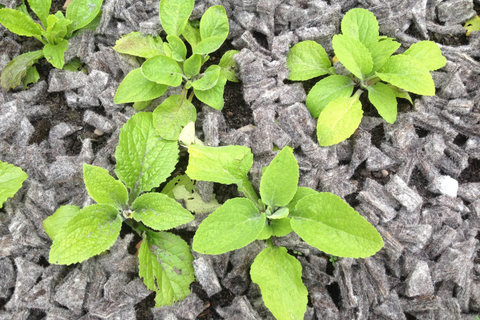
If you want to mulch individual plants in beds or pots we recommend our felt shillies. These can be heaped around the plant to protect the roots from frost, and as they decompose they add a nutrient boost in the spring. Just make sure they’re not heaped against the stalk or trunk as this can cause the plant itself to rot at the stem.
Our new wool mulch mats are also very popular at this time of year. Tuck them around your plants to neatly protect them. The mulch mats last very well, and should last all year round.
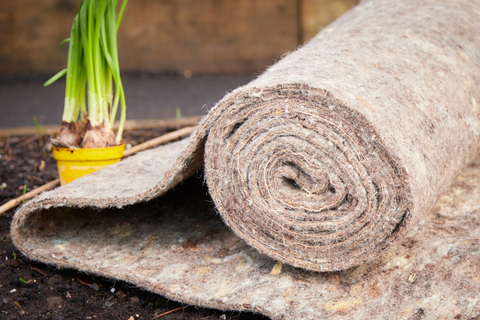
If you want to protect the whole bed then you’ve got two options. You can either go for the neat look and use a longer piece of our versatile sheep wool garden felt. You can cut holes in this and poke the plants through, or cut it into sections and peg it out. If you don’t mind the dead sheep look, then the cheapest option is our big bag of raw sheep wool. This is unwashed (the garden felt is made of washed wool). Being raw wool, it contains lanolin, whatever the sheep was last rolling in, and a bit of muck and poo. It’s all good for the garden and it makes excellent frost-deterring mulch. The garden felt is about 1kg per linear meter, so the raw wool at 10kg will give you more wool for your money. You can spread it out as thickly as you think the plants require. It will last all winter and start decomposing over the spring.
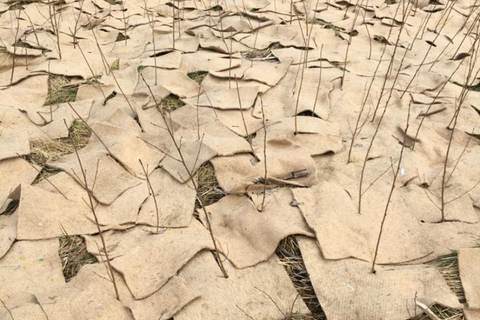
How is it that weeds manage to grow in the winter when everything else is dormant? Keep the weeds suppressed with our neat jute mulch mats. These will also offer protection against frost, and will stop weeds from sprouting, especially when spring finally comes. Made from recycled jute coffee sacks, they are more densely felted than the wool products and last longer. The wool will give greater protection against frost, as it is better at trapping air and working as an insulator, but the jute will do a better job of suppressing weeds.
Our ultimate weed-suppressing material are these heavy rolls of felted jute. Made to our specification, it is 5mm thick, 25m long, 1m wide, and HEAVY: 800g/m². There are a lot of jute mulch products on the market but we have ours made more densely than most. This will last a couple of years, eventually decomposing down.

